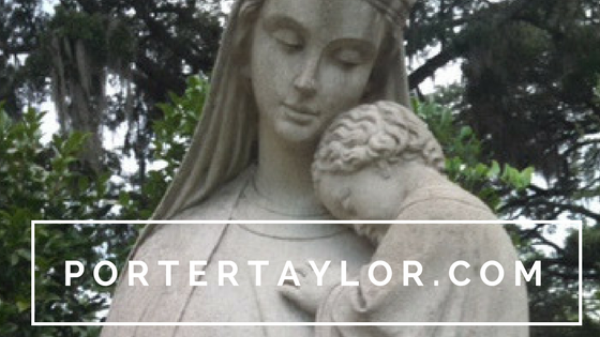Meditations in the Time of a Pandemic
Anti-Racism
June 25, 2020
+Porter Taylo
Anti-Racism is about opening to a wider reality by letting go of our nearsightedness. “Once I was blind but now I see.” We grow up learning our culture’s way of mapping the world. Whom do we see as important and whom can we neglect? It may be surprising, but even Jesus had to learn to see. When he first encountered the Canaanite woman, he didn’t see her (Matthew 15:22-28). He dismisses her and implies she is a dog. But when she enters a conversation with him, it causes him to open his eyes and see her as a woman of great faith. He is freed from his nearsightedness. I think that everything that happens to Jesus happens to us. Therefore, anti-racism is not just a civic duty; it’s about discipleship.
We live in a culture that is not only infected with blindness, but it has systematized the blindness so that all white people grow up being infected. Remember the line from the Broadway play South Pacific (you might have to be close to my age)? “You’ve got to be taught before it’s too late. To hate all the people your parents hate.”
When we talk about dis-mantling racism, we are talking about white people learning to see. And it’s hard. It’s hard not just because white folks are conditioned on how to filter their sight; it’s hard because it means admitting that part of where white men and women are is because they are privileged in a system that awards whiteness. Dismantling racism is not just about seeing other people as having equal value—as Jesus came to see the Canaanite woman--it’s about recognizing the ways the system
we live in perpetuates discrimination or blindness and then admitting that we who are as white persons means we have come to see that system as “normal” or even “right.” Then it’s about change.
There is Good News. Those of us who have been privileged by our skin color can be cured of our blindness and our prejudice. It’s hard work and requires honesty and a willingness to grow. As Christians, our terms for this cure are “repentance and conversion.” We who are white must do the work to free our minds from our old racist perspective, but this is more than head work. It’s heart work. It’s systems work. It’s surrender work. It’s repentance work. And it’s hard—but it’s about salvation. St. Augustine wrote, “You are the veil that separates you from the Paradise you seek.” Anti-Racism is about changing systems. It’s about making the world right for everyone. But before those of us who are white start working on the world, we must work on ourselves. We must lift our interior veil and learn to see. In his early twenties, Thomas Merton asked his friend Robert Lax how one becomes a saint, and Lax answered “By Wanting to.” Yes, to learn to see is hard work, but it’s the work that has been given to white folks and it begins with their waning to do it for their sake and the world’s sake and Christ’s sake. The first step is learning to see.
Prayer:
God of all beings and all races, cleanse our sight, widen our vision, help us see all of our fellow human beings as your children, and then give us the strength to change systems that perpetuate blindness.
Practice:
Robin DiAnelo, author of White Fragility writes that she's often asked by other white people, "What do I do?" She advises, "Make a list of why you don't know what to do. Maybe you never talk about racism with your white friends. Maybe you never talk about racism with your black, Indigenous, or friends of color. Maybe you don't have any black, Indigenous, or friends of color. Maybe you haven't cared enough to find out before now." Whatever is on your list, let it guide you. Addressing the reasons you've observed won't be quick and easy, but you can start educating yourself today.”
